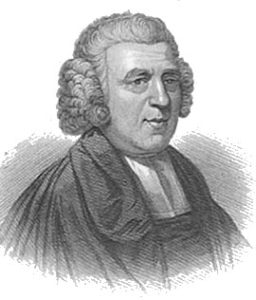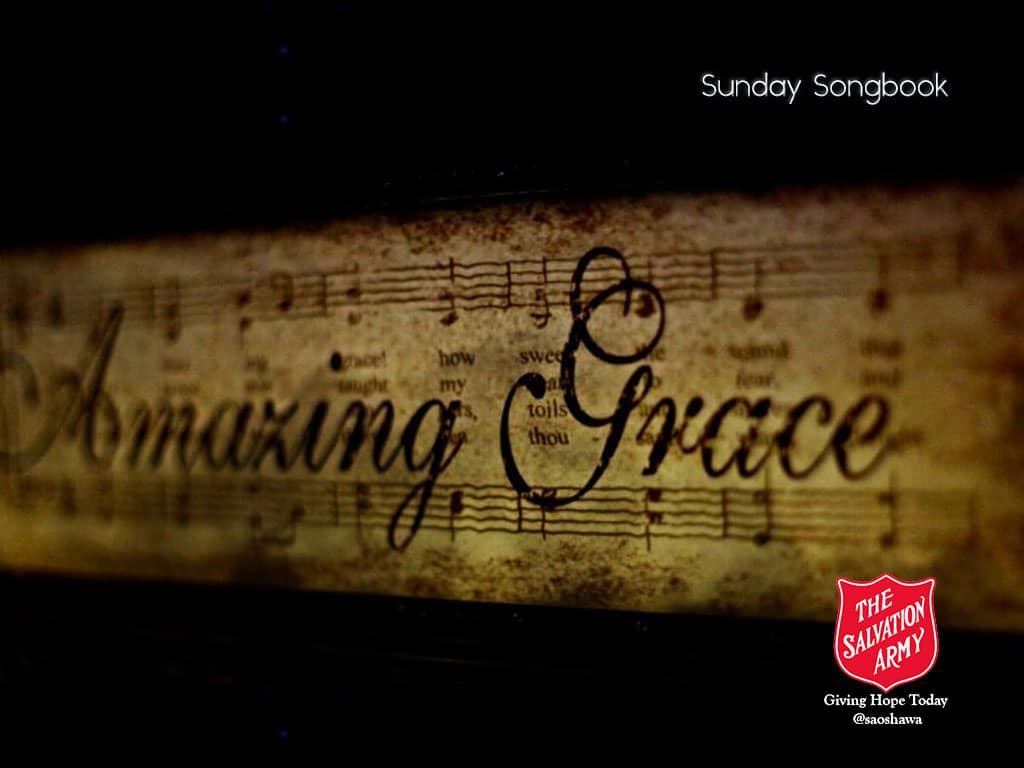Amazing grace! How sweet the sound,
That saved a wretch like me!
I once was lost, but now am found,
Was blind, but now I see.
‘Twas grace that taught my heart to fear,
And grace my fears relieved;
How precious did that grace appear
The hour I first believed!
Through many dangers, toils and snares
I have already come;
‘Tis grace has brought me safe thus far
And grace will lead me Home.
When we’ve been there ten thousand years,
Bright shining as the sun,
We’ve no less days to sing God’s praise
Than when we first begun.
 Probably all readers know something of the author of this familiar and once secularly popular hymn: Englishman John Newton, often remembered as a slave trader who became an abolitionist. Remember when the song was frequently on radio, with bagpipe accompaniment? Here are a few more details of Newton’s life. His father was a master mariner, and when John was only eleven years old, they made several voyages together. At nineteen, John was conscripted into the Royal Navy, but he soon transferred to the merchant marine and slave-trading business. Because of his mother’s early teachings about Scripture, in 1748, now twenty-three years old, John began to reread the Bible. His survival of a fierce storm at sea, in which he cried out to God, also contributed to his conversion to faith in Christ. Not long after this, Newton studied Greek and Hebrew in order to qualify for ordination as a minister of the Gospel. Rejected at first, he was eventually ordained and in 1764 became curate of Olney, Buckinghamshire, and wrote 280 hymns for their hymn book. Later he served as curate of St. Mary Woolnoth in London. At this point he campaigned strongly for the abolition of slavery, sometimes in cooperation with British politician William Wilberforce.
Probably all readers know something of the author of this familiar and once secularly popular hymn: Englishman John Newton, often remembered as a slave trader who became an abolitionist. Remember when the song was frequently on radio, with bagpipe accompaniment? Here are a few more details of Newton’s life. His father was a master mariner, and when John was only eleven years old, they made several voyages together. At nineteen, John was conscripted into the Royal Navy, but he soon transferred to the merchant marine and slave-trading business. Because of his mother’s early teachings about Scripture, in 1748, now twenty-three years old, John began to reread the Bible. His survival of a fierce storm at sea, in which he cried out to God, also contributed to his conversion to faith in Christ. Not long after this, Newton studied Greek and Hebrew in order to qualify for ordination as a minister of the Gospel. Rejected at first, he was eventually ordained and in 1764 became curate of Olney, Buckinghamshire, and wrote 280 hymns for their hymn book. Later he served as curate of St. Mary Woolnoth in London. At this point he campaigned strongly for the abolition of slavery, sometimes in cooperation with British politician William Wilberforce.
The fourth verse of Amazing Grace was written by another author, John P. Rees, who was born twenty-one years after the death of Newton. The composer of the melody is unknown. For an interesting story about the possible origins of the music, listen to a YouTube video of Wintley Phipps. You may also enjoy an intriguing twist on the song by a modern group recorded below.
WORDS: JOHN NEWTON AND JOHN REES; MUSIC: UNKNOWN
S.A. SONG BOOK, 1987 EDITION, #308; 2015 EDITION, #453
REFERENCE: USAWEST.ORG









